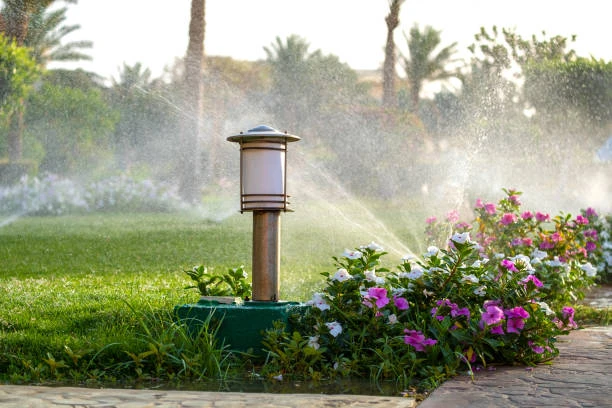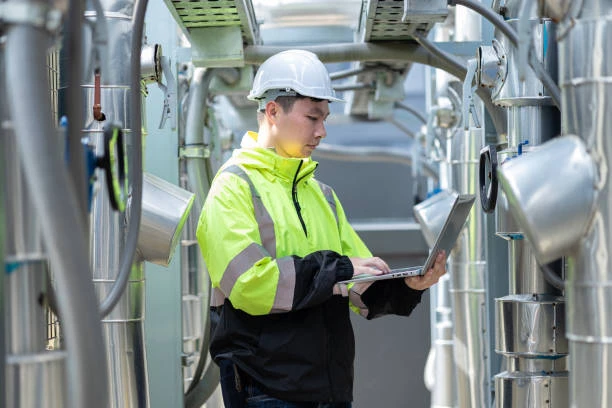In recent years, drought has become an increasingly pressing issue, impacting agricultural practices and water management systems worldwide. As water scarcity escalates, the need for efficient irrigation solutions has never been more critical. Proplastics irrigation pipes have emerged as a reliable option for farmers and landowners looking to optimize water usage and ensure the sustainability of their crops. In this article, we will explore the benefits of Proplastics irrigation pipes, their impact on agricultural productivity, and the growing demand driven by drought conditions.
Understanding Proplastics Irrigation Pipes
Proplastics irrigation pipes are high-quality, durable plastic pipes designed specifically for agricultural irrigation systems. They are essential in advanced materials that offer excellent resistance to corrosion, UV rays, and other environmental factors. These pipes are lightweight, making them easy to transport and install, while their flexibility allows for easy maneuvering around existing structures and terrain.
Key Features of Proplastics Irrigation Pipes
- Durability: Proplastics irrigation pipes are important to withstand harsh environmental conditions. Their resistance to chemical corrosion means they can last for years with minimal maintenance.
- Cost-Effectiveness: Although the initial investment might be higher than traditional irrigation systems, the long-term savings in water usage and maintenance costs make Proplastics a smart choice for farmers.
- Efficiency: These pipes facilitate precise water delivery directly to the root zones of plants, reducing evaporation and runoff. This targeted approach ensures that crops receive the right amount of water, optimizing growth and yield.
- Ease of Installation: The lightweight nature of Proplastics pipes means they can be useful quickly and easily, minimizing labor costs and disruption to farming operations.
- Versatility: Suitable for various irrigation methods, including drip, sprinkler, and surface irrigation, Proplastics pipes to meet the specific needs of different crops and landscapes.

The Impact of Drought on Agriculture
Drought conditions have significant implications for agricultural productivity. When water resources are limited, farmers face challenges in maintaining crop health and yield. Prolonged dry spells can lead to:
- Decreased Crop Yields: Insufficient water supply directly affects the growth and productivity of crops. Many plants require consistent moisture to thrive, and without adequate irrigation, yields can plummet.
- Increased Costs: Farmers may need to invest in more labor, technology, or alternative water sources to compensate for the lack of rainfall, driving up operational costs.
- Soil Degradation: Drought can lead to soil erosion and degradation, making it less suitable for future farming. Over time, this can reduce the land’s agricultural viability.
Proplastics Irrigation Pipes: A Solution to Drought
Given the challenges posed by drought, the demand for Proplastics irrigation pipes has surged. These pipes provide a sustainable irrigation solution that can help mitigate the effects of water scarcity. Here’s how they contribute to more resilient agricultural practices:
- Water Conservation: Proplastics pipes are important to minimize water waste. By delivering water directly to the plant roots, they help reduce evaporation and runoff, ensuring that every drop counts.
- Improved Crop Resilience: With efficient irrigation systems in place, crops are better useful to withstand dry conditions. Consistent moisture can help maintain plant health, even during periods of limited rainfall.
- Adaptability: Farmers can easily modify their irrigation systems using Proplastics pipes to respond to changing weather patterns, ensuring that their crops receive adequate water regardless of external conditions.
- Enhanced Productivity: By optimizing water usage, farmers can improve their yields, making their operations more profitable even in the face of drought.
- Environmental Sustainability: Using Proplastics irrigation pipes contributes to sustainable farming practices. By conserving water and reducing runoff, these systems help protect local ecosystems and promote biodiversity.
Case Studies: Successful Implementation of Proplastics Irrigation Pipes
1. Vineyard in California
A vineyard in California faced severe water restrictions due to prolonged drought. By switching to Proplastics irrigation pipes, the vineyard was able to implement a drip irrigation system that minimized water use while maintaining grape quality. The result was a 30% reduction in water consumption and improved grape yields.
2. Vegetable Farm in Spain
In Spain, a vegetable farm struggling with water scarcity adopted Proplastics irrigation pipes to enhance their sprinkler system. This switch allowed for precise water delivery, reducing waste and improving crop health. The farm reported a significant increase in vegetable production and a more sustainable approach to water management.
Future Trends in Irrigation Technology
As climate change continues to impact weather patterns, the demand for innovative irrigation solutions like Proplastics pipes is likely to grow. Future trends may include:
- Smart Irrigation Systems: Integrating technology such as sensors and automated controls can optimize water usage further and enhance system efficiency.
- Research and Development: Ongoing advancements in materials science will lead to even more durable and efficient irrigation pipes.
- Sustainability Initiatives: As more farmers recognize the importance of sustainable practices, the adoption of Proplastics irrigation pipes will likely increase, driving demand and innovation in the sector.
Conclusion
Drought poses significant challenges for agriculture, making effective water management more crucial than ever. Proplastics irrigation pipes offer a sustainable, efficient, and cost-effective solution to help farmers optimize water use and maintain crop health. As the demand for these innovative irrigation systems continues to grow, farmers can better adapt to the changing climate and ensure the long-term viability of their operations.
FAQs
1. What are Proplastics irrigation pipe made of?
Proplastics irrigation pipe are typically made from high-quality plastic materials that are resistant to corrosion, UV rays, and environmental wear.
2. How do Proplastics pipe help conserve water?
These pipes facilitate targeted water delivery directly to the plant roots, reducing evaporation and runoff, which helps conserve water.
3. Are Proplastics irrigation pipe easy to install?
Yes, Proplastics pipes are lightweight and flexible, making them easy to transport and install without requiring specialized tools.
4. Can I use Proplastics irrigation pipe for different types of crops?
Absolutely! Proplastics irrigation pipe are versatile and can be adapted for various irrigation methods to suit different crops and landscapes.
5. How do I maintain Proplastics irrigation pipes?
Maintenance is minimal; regular inspections for leaks and clogs are recommended to ensure optimal performance.


















